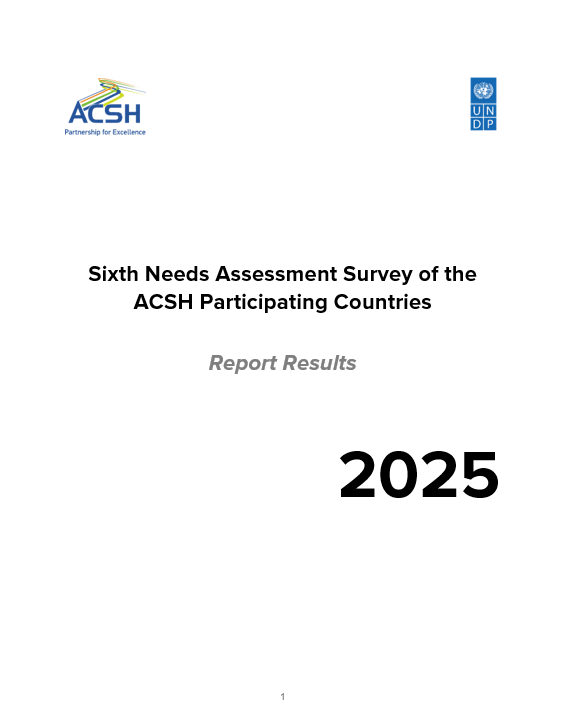ACSH Digital Library
- Sixth Needs Assessment Survey of the ACSH Participating Countries
- Global approaches to AI Governance: Policy, Legal, and Regulatory Perspectives
- De-bureaucratisation through Digital Government Reform Bahrain Case Study
- Artificial Intelligence in Government Communication
- Institutional overview of the modern civil service: role, functions, and global trends
- e-HRM Systems for the Civil Service in Kazakhstan, Kyrgyzstan, Uzbekistan, and the Republic of Korea
- Standards Frameworks for digital transformation
- Improving the prosperity of citizens and effectiveness of the state apparatus: Kazakhstan's experience in implementing project management
- Behavioural Public Policy: New Opportunities and Challenges for Kazakhstan and the Eurasia Region
- Fifth Needs Assessment Survey of the ACSH Participating Countries
- Analysis of communication channels of state bodies with the population
- Public Management in the 21st Century
- Application of Competency Frameworks in HRM: the Case of Montenegro
- Compensation Practices in the U.S. Governments: A Review of Federal, State, and Local Government Practices
- Stewardship and Public Service: An Introduction
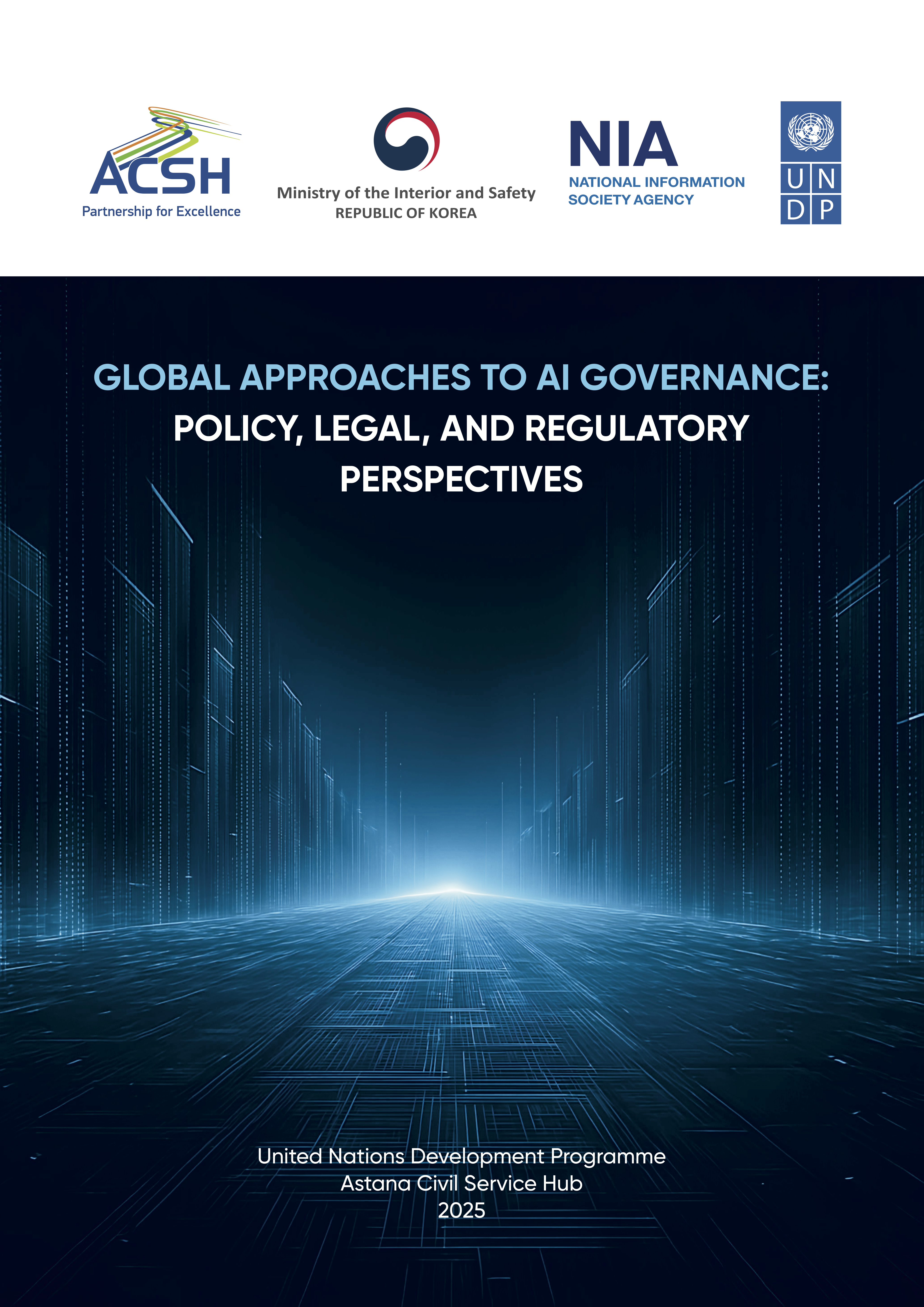
Global approaches to AI Governance: Policy, Legal, and Regulatory Perspectives
18.11.2025
The study focuses on policy, legal, regulatory and ethical aspects of artificial intelligence governance, how these are manifested in international and national legal and regulatory frameworks. It also provides examples of countries around the world examining their approaches to incorporating artificial intelligence in their realms.

De-bureaucratisation through Digital Government Reform Bahrain Case Study
01.10.2025
This case study investigates Bahrain’s approach to de-bureaucratisation through digital government reform, highlighting how administrative simplification, institutional coordination, and service reengineering have reshaped public service delivery. Anchored in the goals of Bahrain’s Vision 2030, the study examines how the Information and e-Government Authority (IGA) led a whole-of-government transformation, deploying over 700 digital services and achieving substantial reductions in transaction times and operational costs.

Artificial Intelligence in Government Communication
10.06.2025
The first practical guide in the region tailored for press secretaries and public relations specialists in government bodies. The guide is designed to help civil servants use artificial intelligence tools effectively and ethically in their daily work. It provides government employees with step-by-step instructions, verified AI tools, and recommendations for the ethical, safe, and effective use of technology in today's environment.
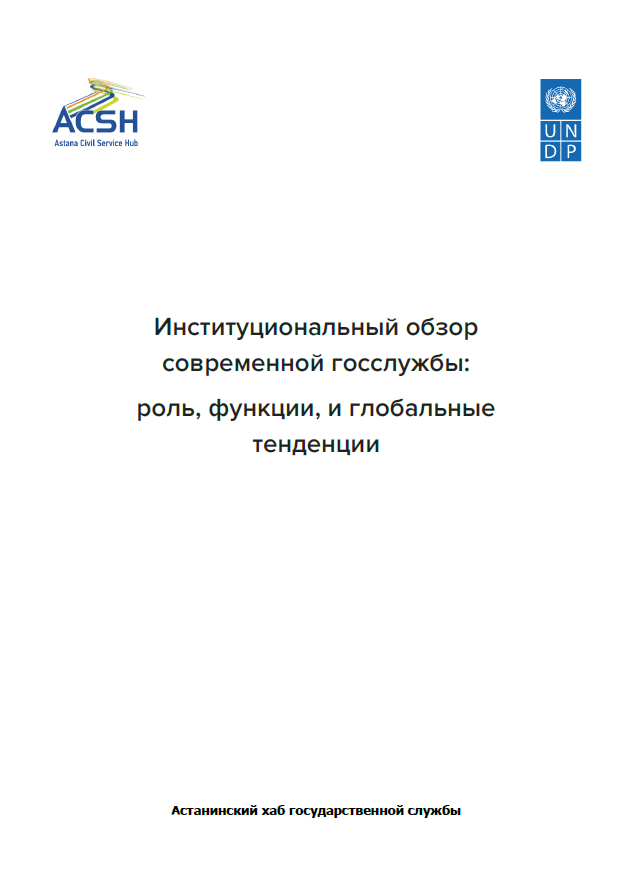
Institutional overview of the modern civil service: role, functions, and global trends
10.05.2024
This publication offers an institutional overview of the civil service system in countries such as Australia, Belgium, UK, Germany, Canada, the Netherlands, Poland, USA, France, South Korea, and Japan.
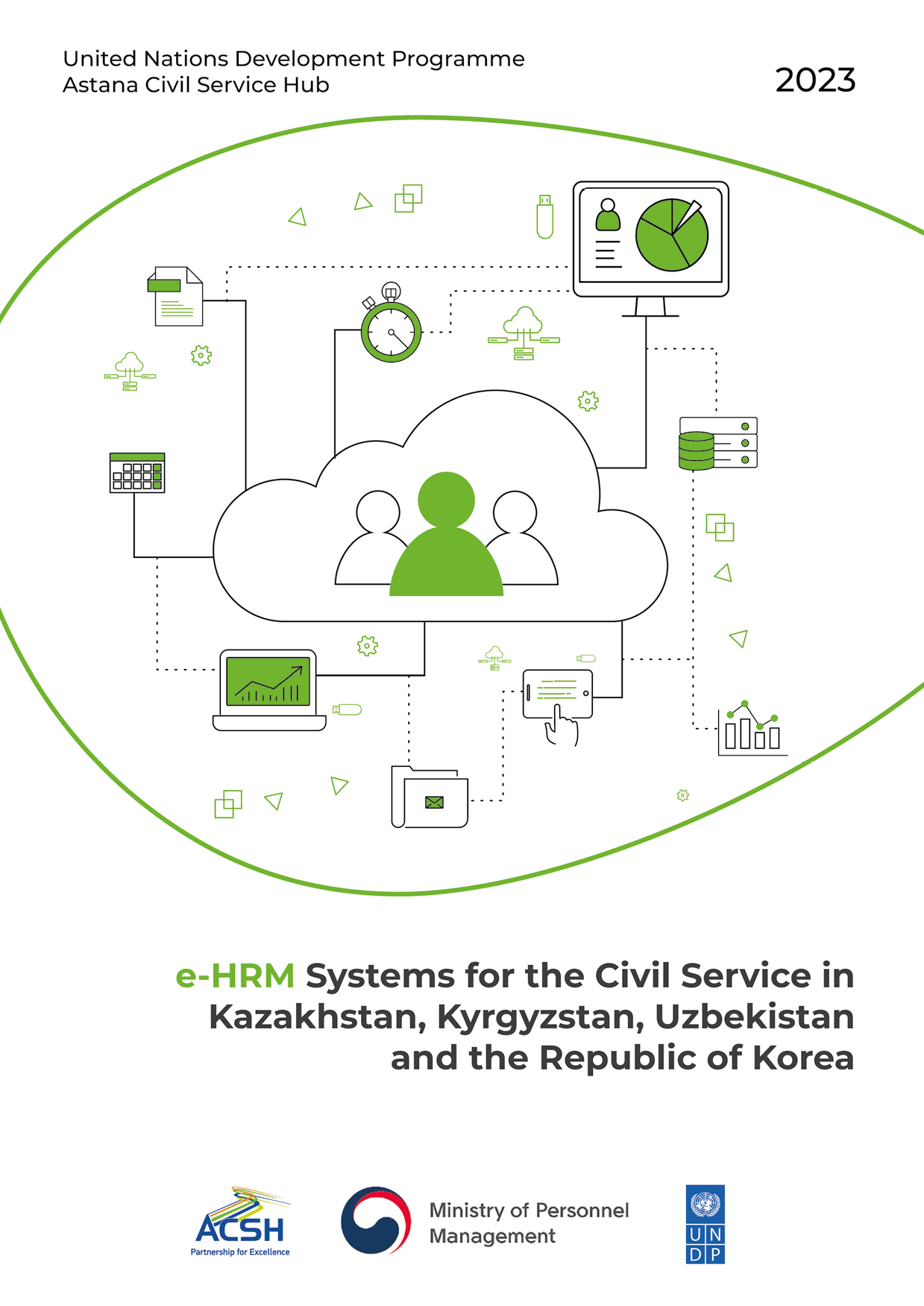
e-HRM Systems for the Civil Service in Kazakhstan, Kyrgyzstan, Uzbekistan, and the Republic of Korea
05.04.2024
This publication is the result of a cross-country comparative study exploring the development of electronic personnel management systems. Conducted jointly by the Astana Civil Service Hub and the Ministry of Personnel Management of the Republic of Korea, the study focused on three Central Asia countries (Kazakhstan, Kyrgyzstan, and Uzbekistan) and the Republic of Korea, with the latter serving as a benchmark case for an electronic human resource management system (e-HRMS).

Standards Frameworks for digital transformation
14.12.2023
This knowledge product covers areas such as effective utilisation of information technologies, cybersecurity, data privacy protection, cloud computing, infrastructure, etc that can contribute to the digital transformation of the participating countries’ public sectors.
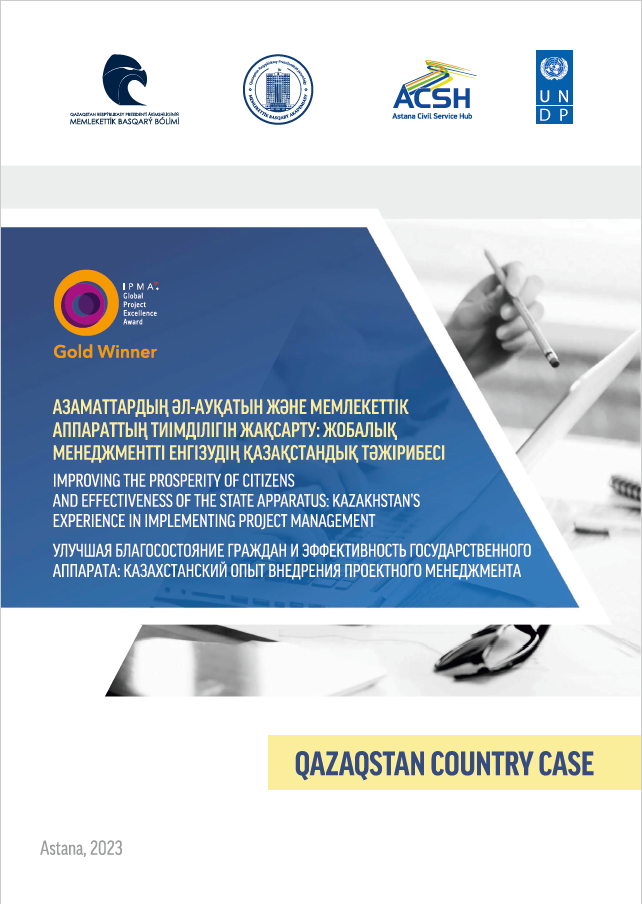
Improving the prosperity of citizens and effectiveness of the state apparatus: Kazakhstan's experience in implementing project management
21.11.2023
Amidst global economic challenges, countries are prioritizing flexibility and efficiency, with many adopting a project-oriented approach to governance. Kazakhstan's shift from traditional bureaucratic models to a National Project Management System (NPMS) is driven by President Tokayev's vision of a "listening state" and "human-centricity." The NPMS, developed through three stages, offers valuable lessons for international audiences seeking efficient reforms. The study, commissioned by the Astana Civil Service Hub, provides practical recommendations for NPMS improvement, highlighting its role in strategic vision, organizational change, and effective policy implementation.
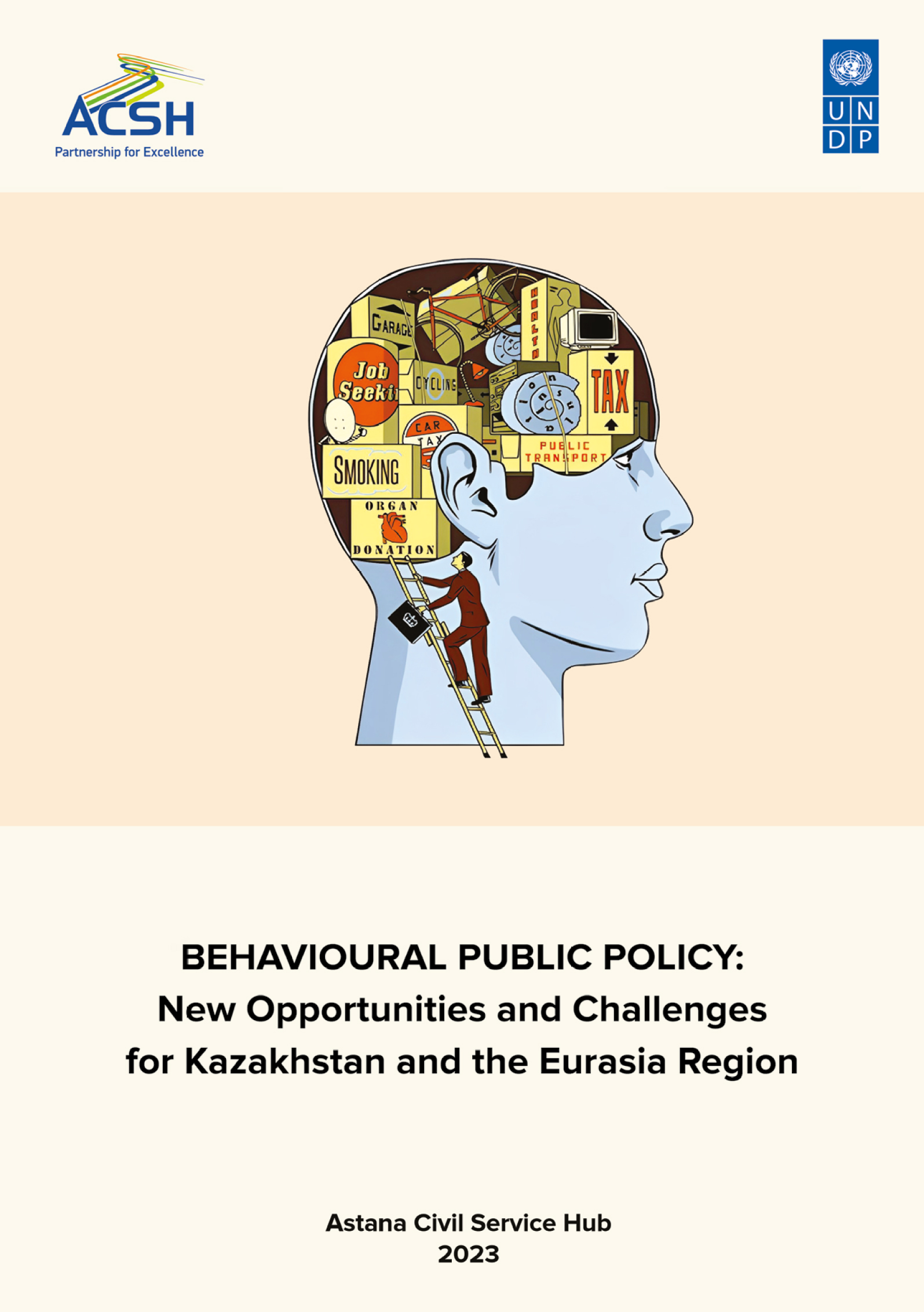
Behavioural Public Policy: New Opportunities and Challenges for Kazakhstan and the Eurasia Region
18.08.2023
This study on Behavioural Public Policy is based on insights from behavioural economics and psychology intending to transform people’s behaviour into desirable behaviour by using ‘nudges’ and correcting cognitive bias. While many countries around the world have actively embraced behavioural insights into public policies, this topic remains a relatively new field for the governments in the post-Soviet Eurasia region, including Kazakhstan. The study attempts to fill the gap and facilitate the understanding of behavioural public policy in the region.

Analysis of communication channels of state bodies with the population
18.05.2023
This study is an analysis of 15 channels of communication between state bodies and citizens with the identification of actors, the sequence of steps (operations), the rules of their work, the effectiveness in achieving the desired result on the part of the population, and comparison with international practice.
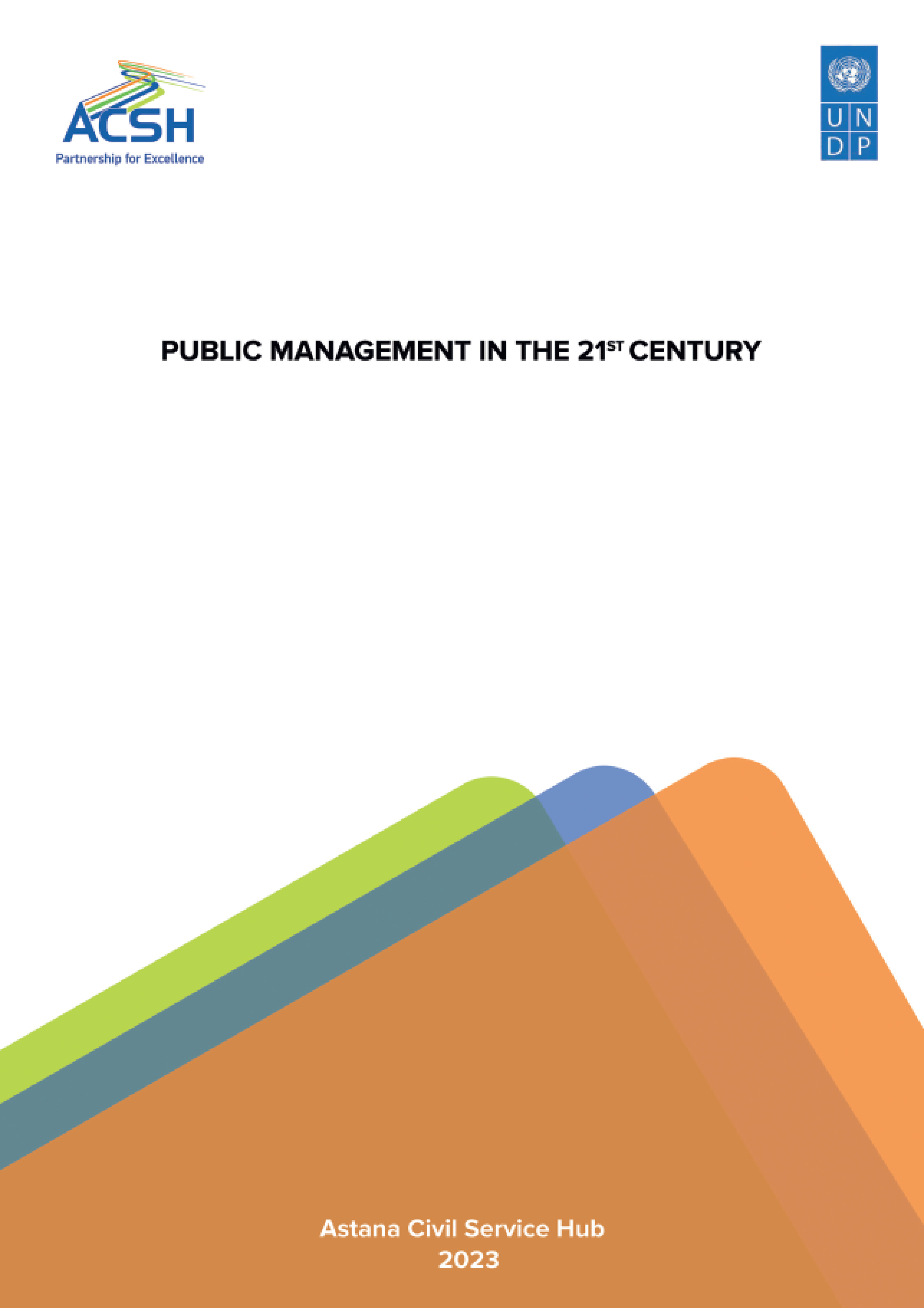
Public Management in the 21st Century
15.05.2023
This publication is a review of public management practices, highlighting the different systems that influenced public administration organisation and structure over the past decades. It starts with the traditional model of public administration, the dominant system for the first eight decades of the 20th Century.
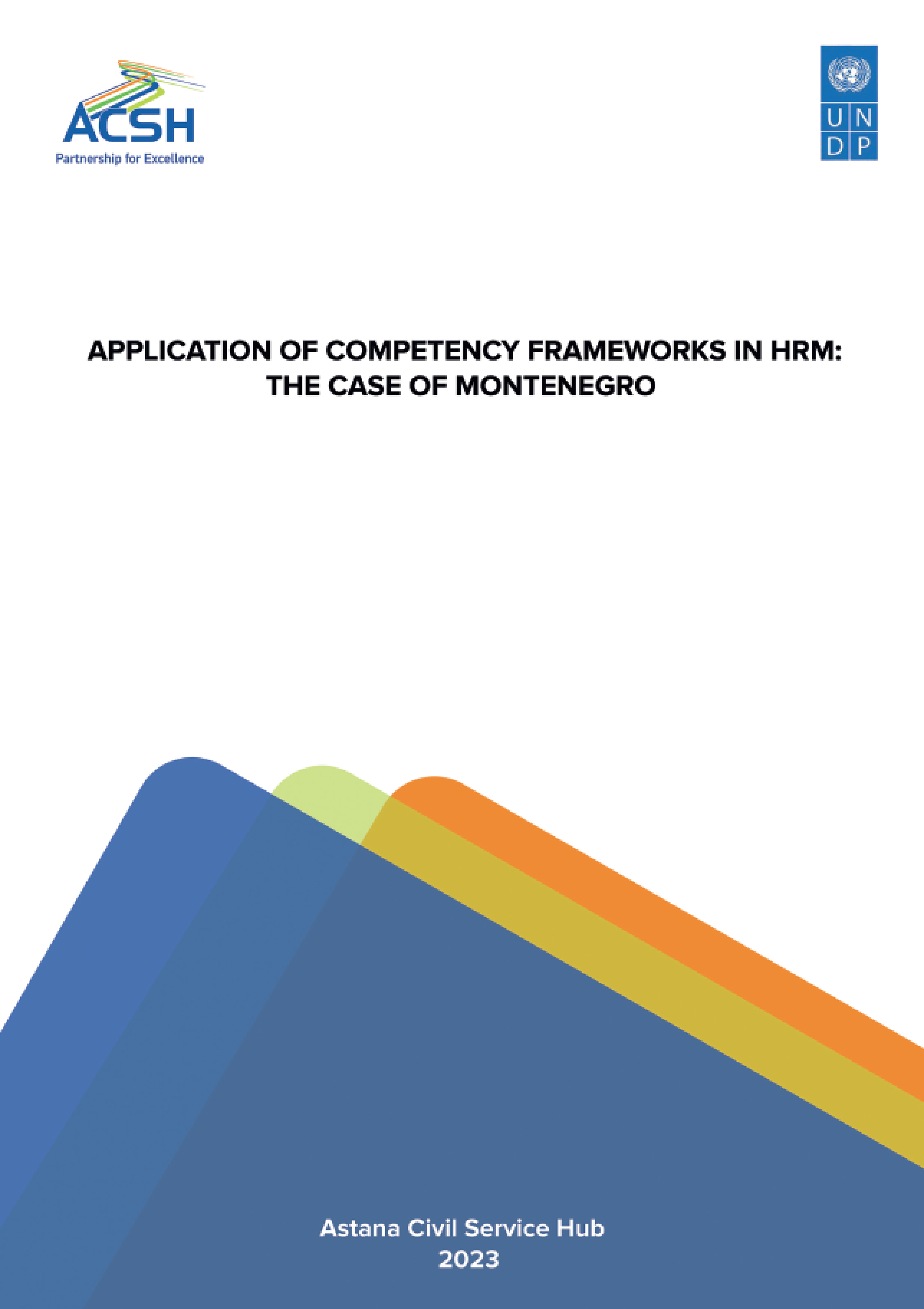
Application of Competency Frameworks in HRM: the Case of Montenegro
15.05.2023
This case study illuminates good practices adopted by the public human resource management system of Montenegro, using a competency framework for the selection and recruitment of senior management staff in the state administration and for the heads of public authorities. In doing this, it also describes the transitioning of the public human resource system of Montenegro towards competency-based employment processes and competency-based performance evaluation cycles.
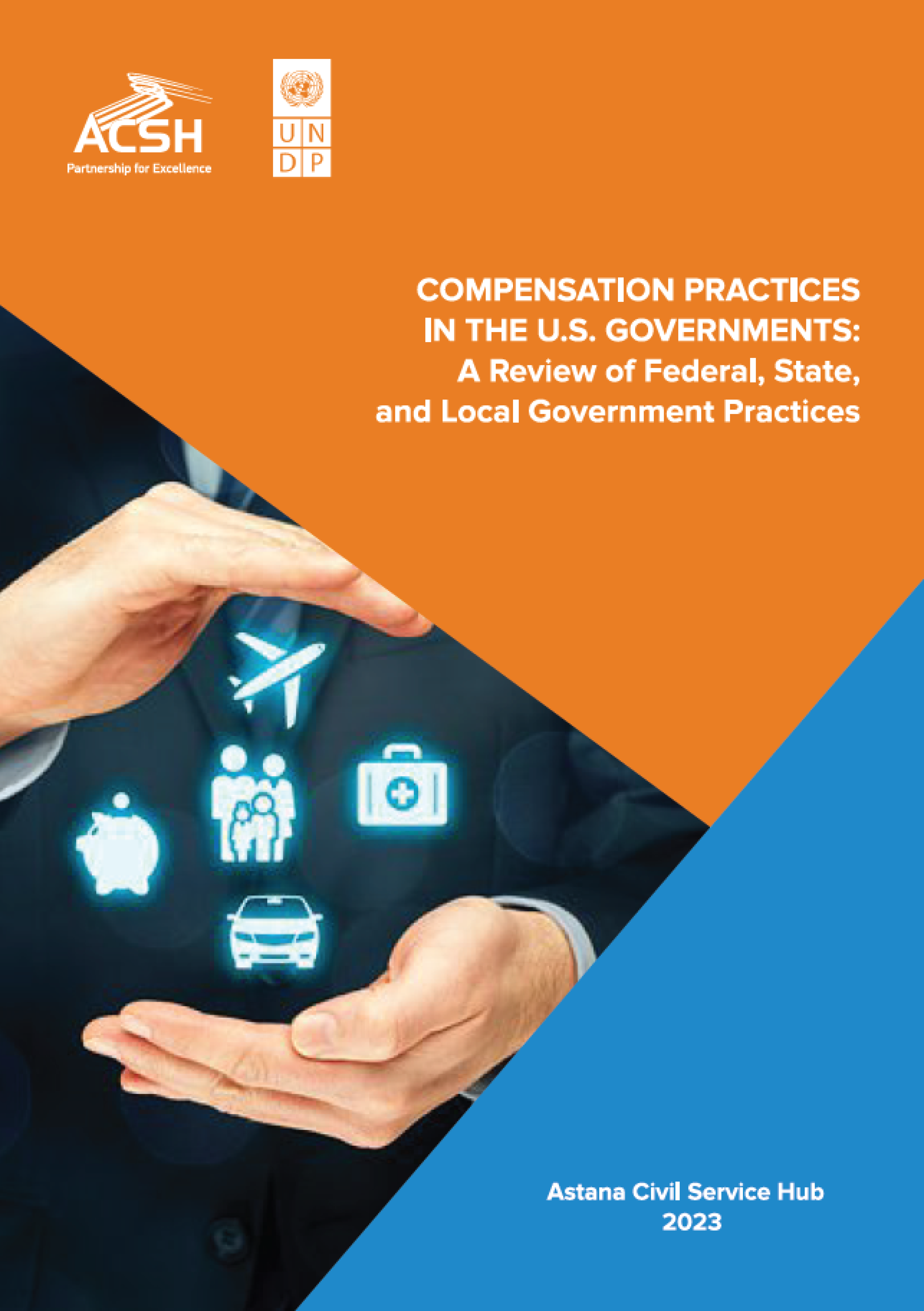
Compensation Practices in the U.S. Governments: A Review of Federal, State, and Local Government Practices
11.05.2023
This report reviews compensation practices at the federal, state, and local levels of the United States governmental institutions that play a variety of roles, and which are mostly staffed by public servants.1 For example, the federal government provides some educational oversight and resource assistance, but the vast majority of education spending and employment is at the local school district, generally, a single, special-purpose form of local government.
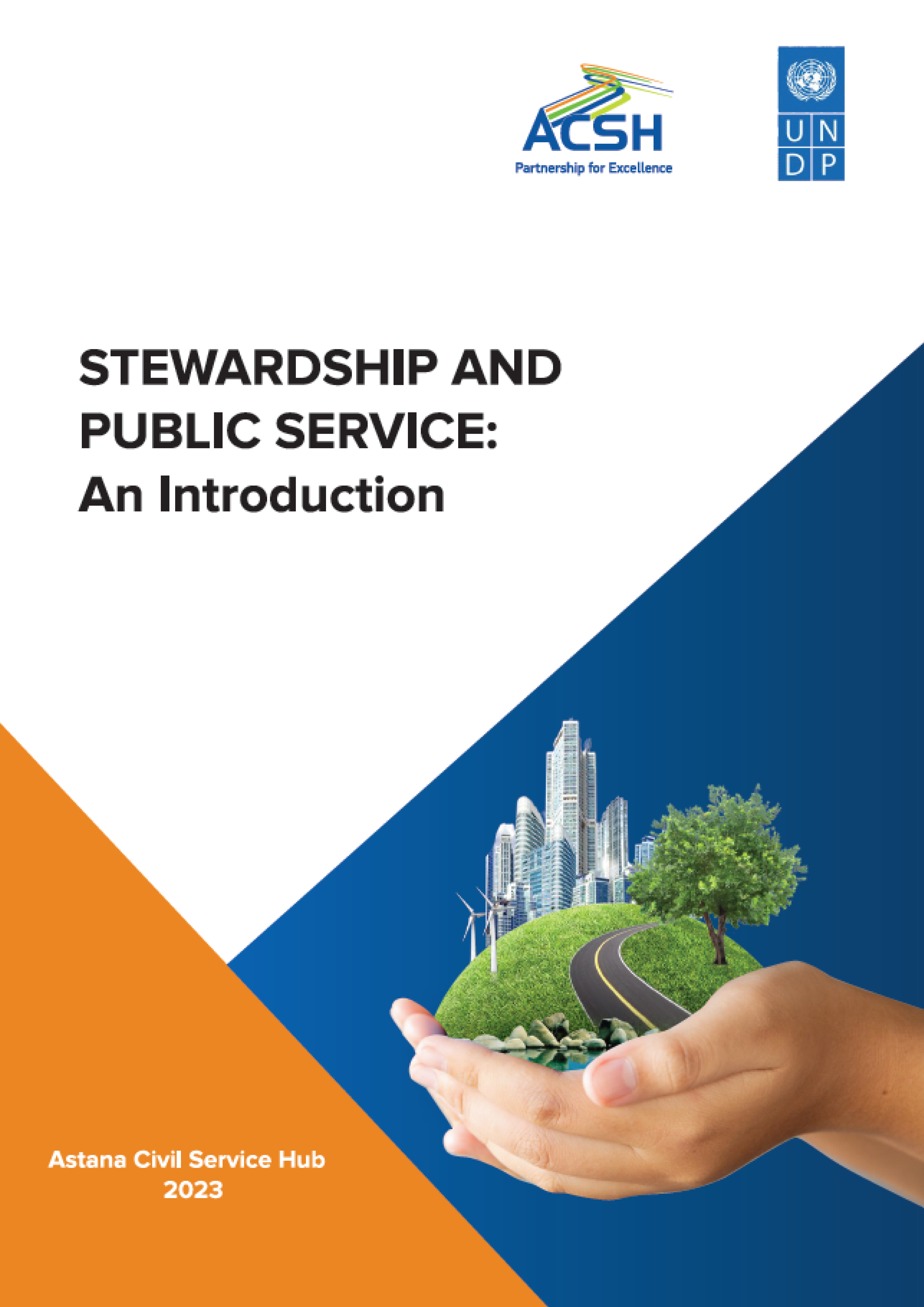
Stewardship and Public Service: An Introduction
11.05.2023
The concept of stewardship encapsulates the perennial mission of the public service; the preservation of the long-term capability of state institutions to act for the greater public good, including the responsible care of public resources. It neatly summarises the fundamental purpose of the public service and public servants: striving to address the long-term concerns for their fellow citizens and for their country, by nurturing the inherited legacy of the past, and by clarifying different alternatives, adopting the best possible options for the coming years.

